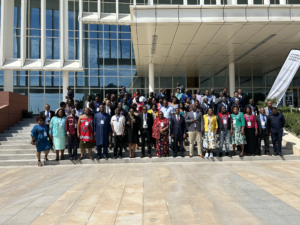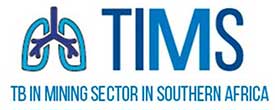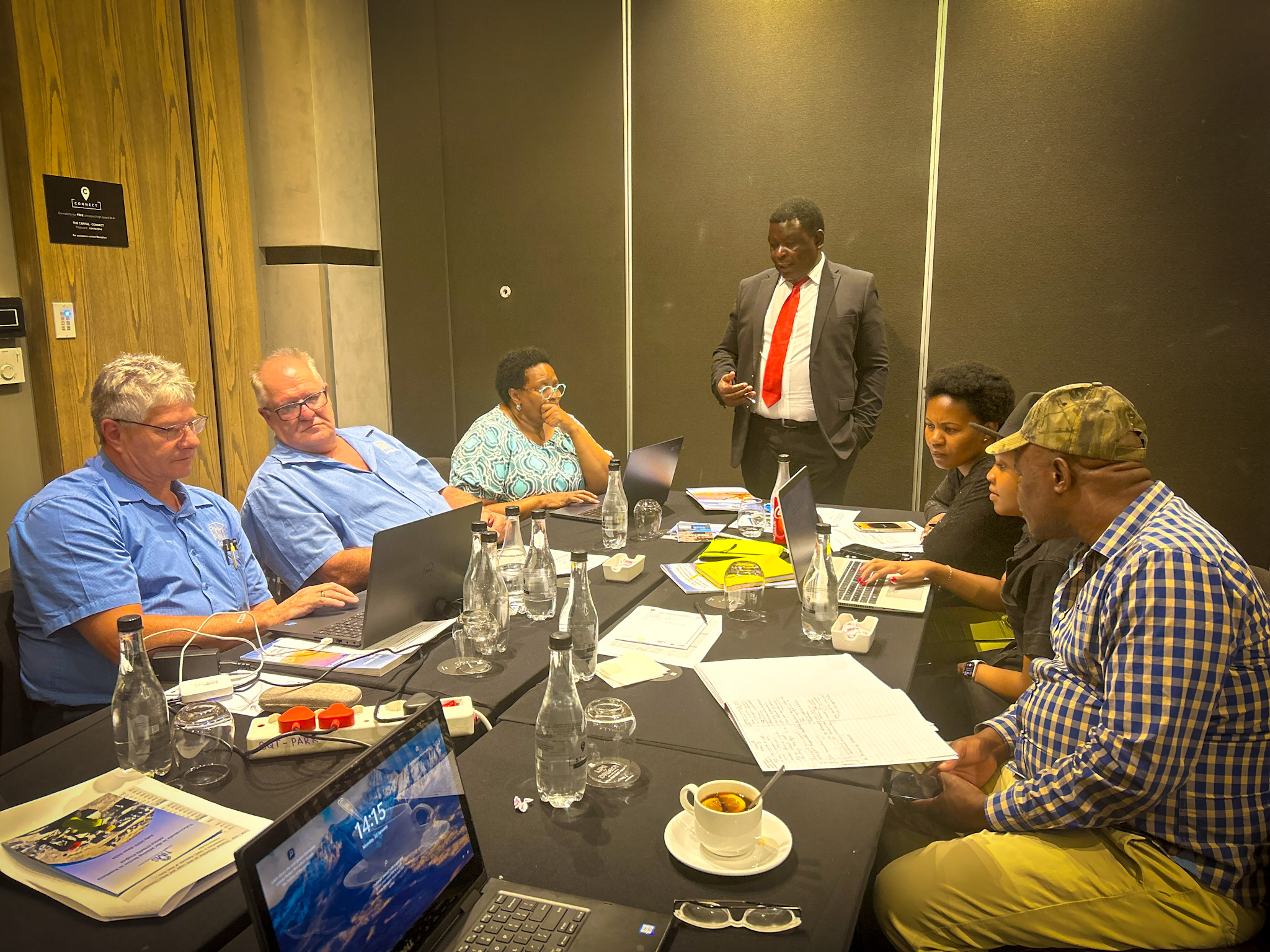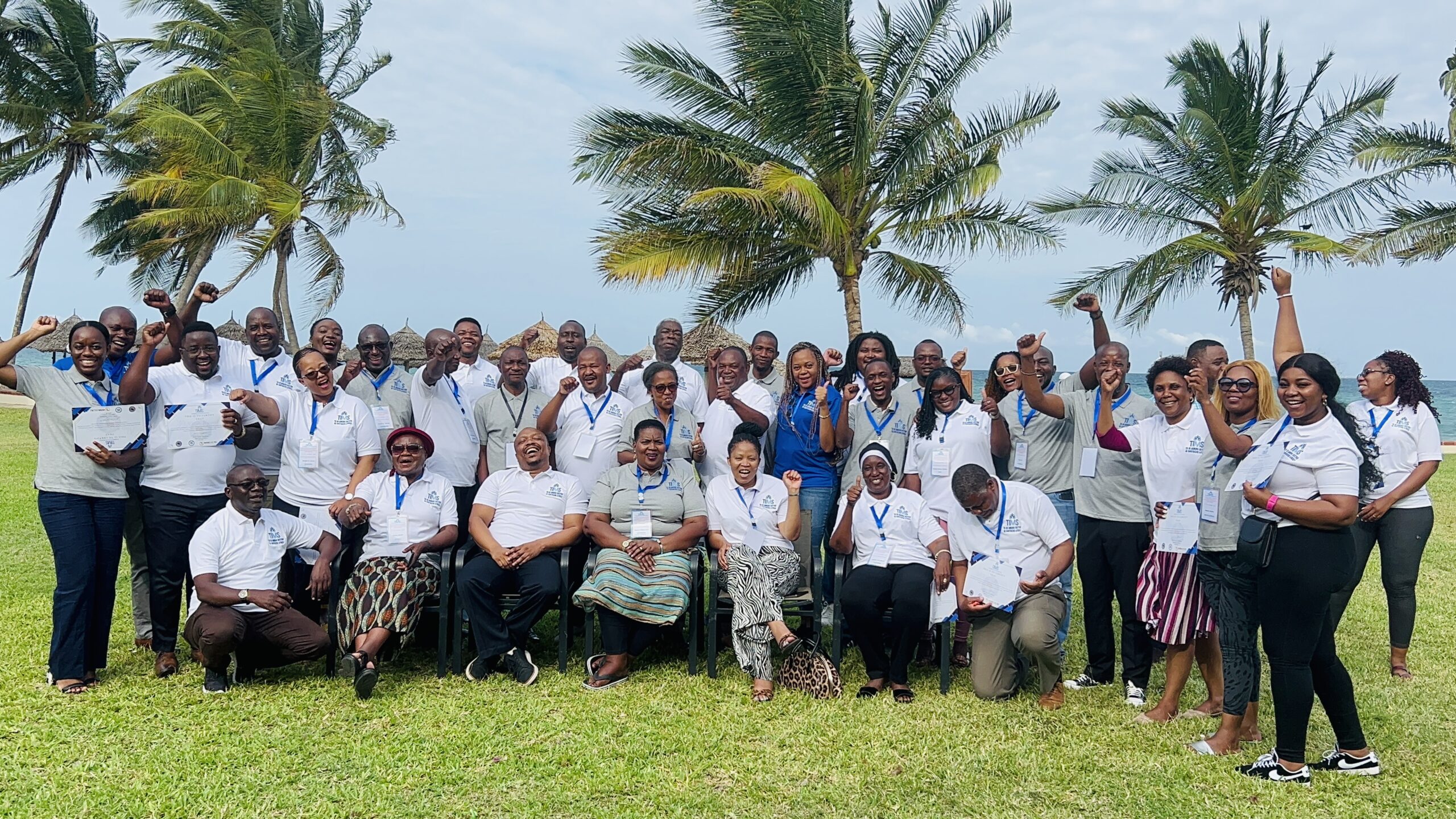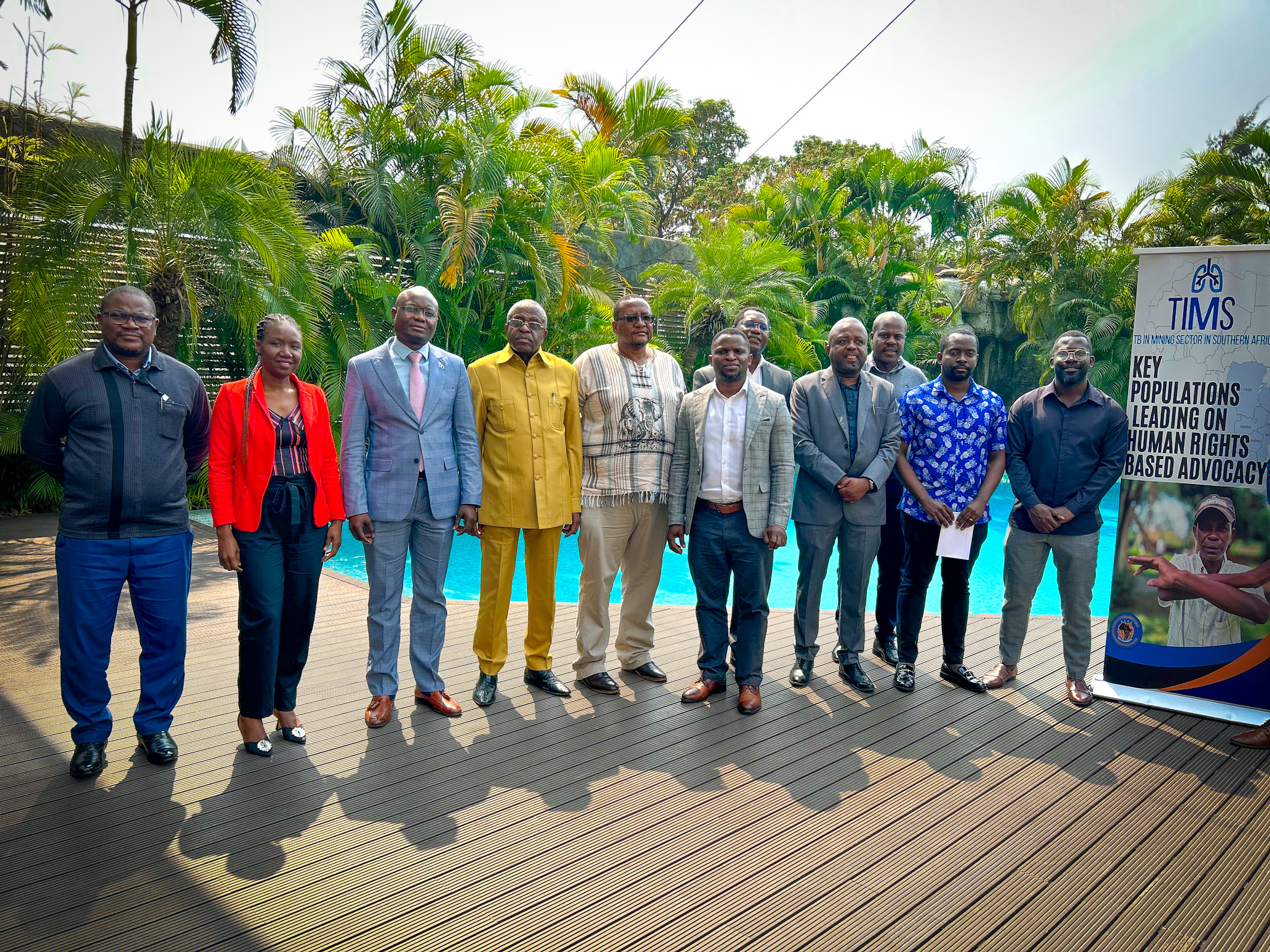In a significant advance towards enhancing Mine Health and Safety (MHS) standards across the Southern…
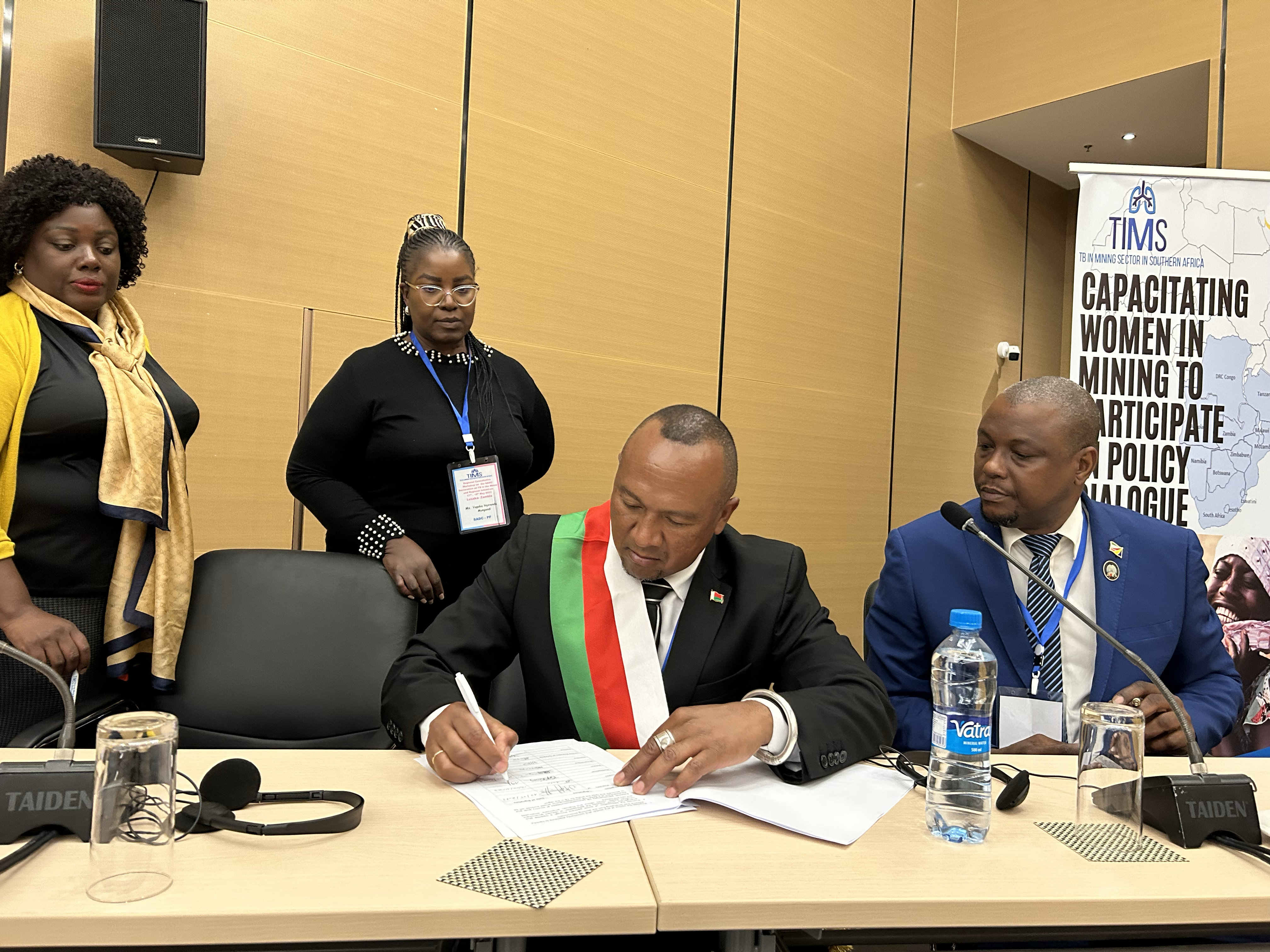
“Sparking Change: Regional Workshop Amplifies Advocacy and Policy Action on SADC’s TB Declaration in Mining Sector”
Southern Africa has long been battling the burden of Tuberculosis (TB) within the mining sector. The Southern African Development Community (SADC) secretariat, in alliance with developmental partners and regional organizations, has undertaken significant initiatives to tackle TB. A notable effort is the Tuberculosis in the Mining Sector in Southern Africa project (TIMS), funded by the Global Fund. TIMS aims to curb TB prevalence among critical populations such as miners, ex-miners, their families, artisanal and small-scale miners (ASM) associations, and mining communities. With the launch of TIMS III, the focus is on ensuring quality TB prevention and treatment services, as well as improving living and working conditions for these communities across the SADC region.
The TIMS project has unfolded over three phases. Phases I and II, executed from 2016 to 2020, concentrated on 10 countries within the region. Building on the successes of the initial phases, Phase III expands to all SADC countries and is currently in implementation from July 2021 to June 2024. The East Central and Southern Africa Health Community (ECSA-HC) is the Principal Recipient (PR) for this phase. Working in close collaboration with the SADC secretariat, ECSA-HC supervises the project’s execution, while the Regional Coordinating Mechanism (RCM) offers critical oversight.
In recognition of the value of collaboration and strategic partnerships, the SADC secretariat, partnered with ECSA-HC, organized a three-day Regional Consultative Workshop from May 17-19, 2023, in Lusaka, Zambia. The assembly included Members of Parliament, representatives from human rights institutions, and various stakeholders. The primary agenda was to strategize effective responses to TB in the region’s mining sector. Discussions centred around human rights and gender barriers impeding service access, legal and regulatory frameworks related to TB compensation and other occupational lung diseases, the declaration’s implementation status, regional collaboration, and sustainability.
The Health Minister, Ms. Sylvia Tembo Masebo, officiated the meeting, emphasizing the continuing relevance of the Maputo declaration, signed by the heads of state in 2012.
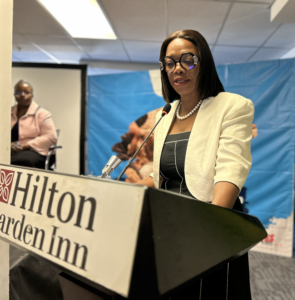
“ the declaration continues to shape our approach and provides us with valuable guidance in our efforts to tackle TB in the mining sector and throughout the SADC region”
Representing the Director-General for ECSA-HC, Ms Lilian Njuba, Director of Finance, stressed the necessity of resolutions from the meeting as a significant milestone in strengthening regional collaboration against TB and occupational lung diseases
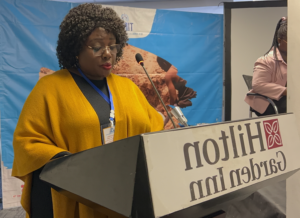
Speaking during the workshop, Dr Christopher Kalila, the SADC-PF Chairperson on TB Caucus, reminded participants that most Southern African countries have yet to enforce laws and regulations to reduce the disease burden in the mining sector. Dr Kalila encouraged those present to fully understand the declaration and its implications. He also pledged support to countries that have yet to establish TB caucuses.
“Caucuses are meant to raise the profile of TB so that it can enjoy the attention it deserves. TB is one of the oldest infectious diseases and kills more people than HIV, COVID 19 but not given the attention it deserves. Currently, less funding is directed to fighting TB than HIV, COVID 19 and others. Despite TB being a priority in strategic plans but the disease is given less attention. There is a need for right from diagnostics therapy, other diseases have advanced so much in a short time, but not TB,”The workshop aimed to update key stakeholders about the declaration and the progress of its implementation, deliberate on issues concerning compensation for TB and other occupational lung diseases, and discuss human rights and gender-related obstacles to accessing TB services. The gathering also provided an overview of the TIMS project’s progress, presenting updates on community rights, gender issues, artisanal and small-scale mining, mine health, and safety.
The workshop convened a diverse group of 60 stakeholders, enriching the discussions with their varied insights and expertise. Attendees included Parliamentary Chairpersons for Health, Mines, and Labour from each SADC country, Members of Parliament from mining-intensive constituencies, Justice/Legal Committees, Members of the SADC Parliamentary Forum, and Representatives from the Regional Coordinating Mechanism (RCM). Human rights were represented by SADC Human Rights Lawyers or Associations and the Network of African National Human Rights Institutions (NANHRI). Civil Society Organizations working on TB and human rights, key population groups, such as the Southern African Miners Association (SAMA) and Miners Unions, also had their voices heard. Representatives from Chambers of Mines, researchers, and experts in TB and human rights completed the attendees’ broad spectrum.
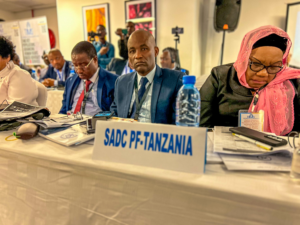
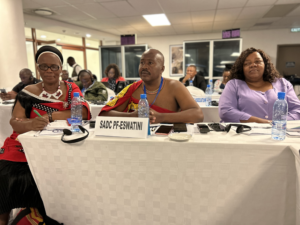
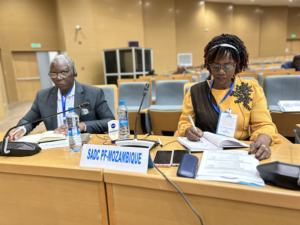
The workshop consisted of several plenary sessions and panel discussions aimed at understanding and addressing the impact of TB in the mining sector. The first session, chaired by Dr Enos Masini and Dr Willy Amisi, laid the foundation for understanding TB’s global and regional burden in the sector. The next session, led by MP – Hon. Serge Muber, dove into the progress and challenges of the 2012 SADC Declaration on TB in the mining sector.
Subsequent panel discussions chaired by Ms Lucy Munthali and a CSO representative examined the crucial role of parliamentarians in combatting TB in the mining sector. They explored policy and legislative measures for addressing TB, respectively. The fourth plenary session, led by the Chamber of Mines representative Mr Charles Siwawa, emphasized the various stakeholders’ roles in the TB fight. The fifth session, spearheaded by Dr Barry Kistnsamy, encouraged plenary feedback and discussions, providing room for diverse opinions and solutions.
In conclusion, the regional consultative workshop served as a vital platform for fostering dialogue and forming unified resolutions to tackle the pressing issue of TB in the mining sector. The culmination of the three-day workshop was marked by parliamentarians signing a meticulously drafted communique. This critical document, born out of thorough consultations, serves as a guiding light for each SADC country, empowering them to advocate for and effectuate the agreed-upon resolutions. It is through such concerted efforts and the continued commitment of all stakeholders that we can hope to significantly alleviate the burden of TB in the mining sector and secure a healthier future for the region.
